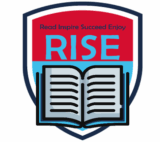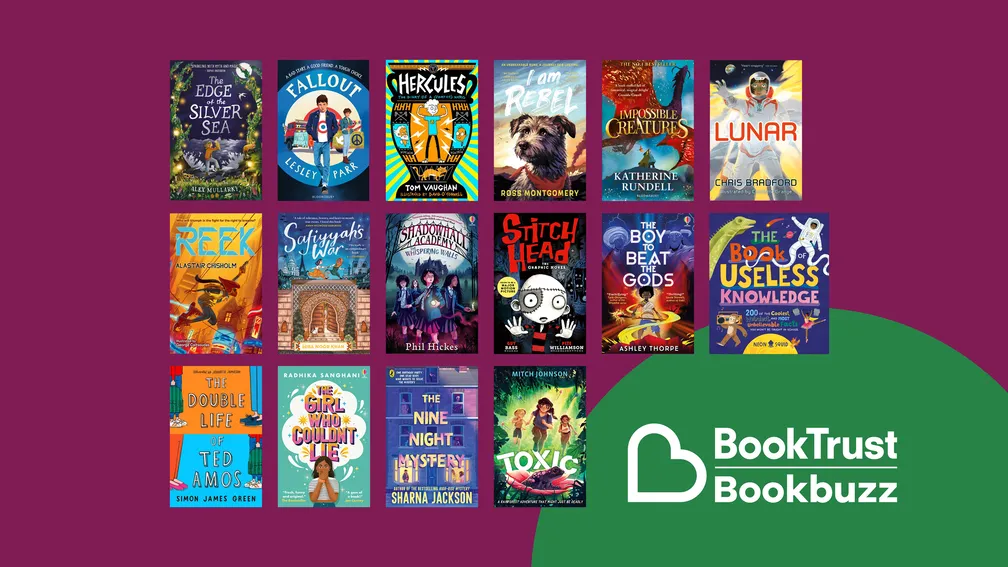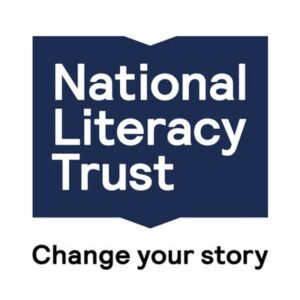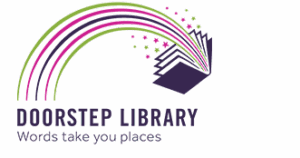Reading at Carnforth High School
At Carnforth High School we encourage and value reading. We support our students to develop confidence and fluency in reading that allows them to improve their academic performance across all subjects, whilst cultivating their communication skills. We want our pupils to explore the world around them with every teacher, in every classroom, through reading both fiction and non-fiction texts that enhance their vocabulary, imagination and curiosity.
We believe that developing reading proficiency and confidence prepares our young people for the future challenges of life in post-16 education, work, and wider society. We do not want any students to be left behind so work to identify any gaps in reading skills, to support all pupils to leave Carnforth High School reading at or above their chronological age. Our overall aim is to be an outstanding reading school.


Reading for Inspiration, Success and Enjoyment – RISE
Reading well means that you will succeed in many areas of your life, including all of your school subjects. You will be able to understand characters and situations that may inspire you. You may also enjoy using your reading skills to explore these new experiences and doing well in life is enjoyable!
RISE to the challenge!
What is ‘RISE’?
- ‘RISE’ is the name of the time in school where students listen to a story being read aloud to them by the teacher, it takes place during form times at least twice a week.
- Students in the same year group all read the same book.
- Each student has their own copy of the book but the important part of these sessions is that they are listening to and following the story.
Why do we have ‘RISE’?
An overview
Let’s start by thinking about the purpose of reading aloud. Reading aloud provides all sorts of academic and cultural advantages to students.
They learn new words, greater knowledge about the world and allows them to visit places and situations that otherwise they never would – it’s a kind of telepathy or time travel and gets us inside minds and places – but only if you know how to and can do it. So, reading aloud doesn’t solve the decoding problem but it does mean that when we read aloud to our students, their reading ability is not a barrier to their understanding and so they can still understand and appreciate the texts we are reading to them. This is addressing situations in the past where they have had a negative experience of having to read independently with high stakes of failure, these sessions are just listening to a story.
Finer Details
Being read aloud to addresses a number of reading points:
- Too many children will not read independently because they are not fluent decoders. They get to the end of a section in a book and cannot recall the beginning because of this.
- This is through no fault of their own: there is no link between decoding (word recognition skills) and intelligence.
- Reading confers all sorts of intellectual advantages: it is proven that the more you read the more intelligent you will become
- We can overcome some of the gap between fluent and non-fluent readers by reading aloud (this won’t address reading fluency, but it will provide non-fluent readers with the intellectual benefits of reading).
- Overcoming fluency is a separate issue which is being addressed on an individual basis.
Also:
- Being read to can make kids cleverer
- Reading aloud may be the most effective way to close the advantage gap.
- And most importantly – Everyone loves stories!
Books that we read in ...
| Document Name | Document Updated | Document Type |
|---|---|---|
| Book that we read in … | 01 Sep 2025 |
This popular programme of books and resources for Years 7 and 8 has been developed by BookTrust to support you in getting young people excited about reading.
Bookbuzz gives students the chance to choose and keep a book they’ll love from 16 fantastic titles, newly selected each year by our expert panel of librarians and teachers.

Supporting your child’s reading at home
 |
National Literacy Trust – Words for Life Tips, activities, and book lists for different age groups, including teens. Explore Words for Life [literacytrust.org.uk] |
 |
BookTrust – Motivating Children to Read at Home 8 practical tips for parents to make reading enjoyable and stress-free. Read the tips [booktrust.org.uk] |
 |
Scottish Book Trust – Advice for Parents Ideas for reconnecting reading with hobbies, using e-books, and selecting engaging material for teens. View advice [scottishbo…ktrust.com] |
 |
Doorstep Library – Tips for making shared reading fun and engaging at home. Visit Doorstep Library |
 |
Government Guidance 10 Top Tips for Parents to Support Children to Read – GOV.UK Practical advice for making reading enjoyable for children. |
| Document Name | Document Updated | Document Type |
|---|---|---|
| 7 Top Tips to Support Reading at Home | 01 Sep 2025 | |
| Supporting Childrens Reading Secondary | 01 Sep 2025 |
Related documents
| Document Name | Document Updated | Document Type |
|---|---|---|
| Reading Strategy | 01 Sep 2025 |
